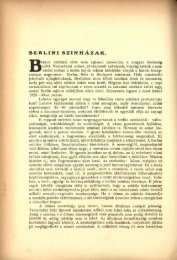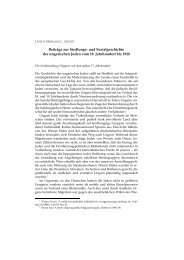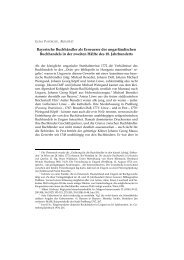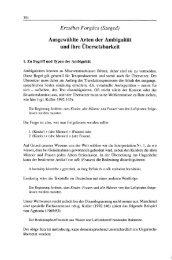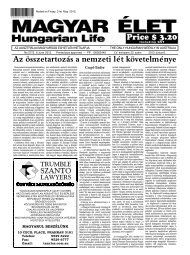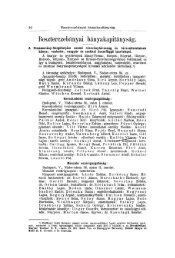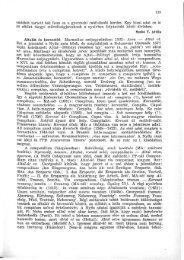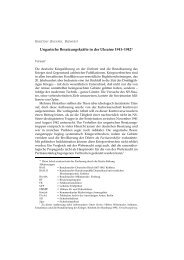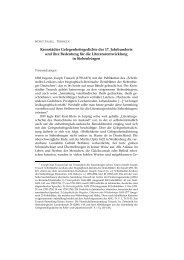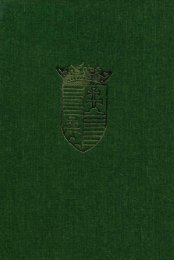Journal of Eurasian Studies - EPA
Journal of Eurasian Studies - EPA
Journal of Eurasian Studies - EPA
You also want an ePaper? Increase the reach of your titles
YUMPU automatically turns print PDFs into web optimized ePapers that Google loves.
April‐June 2010 JOURNAL OF EURASIAN STUDIES Volume II., Issue 2.<br />
_____________________________________________________________________________________<br />
ARADI, Éva<br />
The Yue‐chis, Kushans and Hephtalites<br />
The Scythian Empire broke up in about 400 B.C.; 1 after that, their successors, the different nations<br />
originated from the Scythians, established their principalities and later their empires2 . According to<br />
Strabo, the Caspian Sea was the dividing line between the Western and Eastern Scythians: in territory<br />
west <strong>of</strong> the Caspian Sea lived the Dahas, the Massagetas and the Sarmatians, while in the trans‐Caspian part<br />
existed the Sakas, the Sakarauls (the Royal Scythians), the Thokarians, the Yue‐chis, the Hsiungnus, the<br />
Wusuns, the Parthians, the Zhuan‐Zhuans, the Asios and the Pechenegs. 3 All the peoples had their own<br />
names. According to Herodotus and Strabo, the Caspian Sea was the above‐mentioned dividing line,<br />
while the Indian Puranas considered the Aral Sea as the border line between them. 4 The Indians knew<br />
both the seas only from hearsay, because, according to them, the Aral Sea was bigger than the Caspian,<br />
and certainly this fact is not true. All the Indian, Greek, Persian and Armenian sources mention Eastern<br />
and Western Scythians and most probably the Caspian Sea was the division between these peoples.<br />
This paper deals with the Yue‐chis, the Kushans and the Hephtalites, with their tribes and tribal<br />
confederations. Although the Indian sources never mention them as Scythians but rather as Sakas or<br />
Sakyas, 5 this paper will name them Scythians according to the international science.<br />
The sources that write about these tribes are not always authentic. Strabo never went to the countries<br />
<strong>of</strong> Central Asia; he wrote his Geographia on the basis <strong>of</strong> the works <strong>of</strong> Herodotus and Eratosthenes or from<br />
hearsay. According to him, the eastern border <strong>of</strong> Asia was India; he did not write about the powerful and<br />
ancient country: China, and even the information about India in his book was not correct. 6<br />
The Indian sources are more exact. Alhough they had their own writing systems, the Brahmi and the<br />
Kharosti scripts, they carved their works on either palm leaves or on wood and, in the tropical humid<br />
climate, these materials were quickly destroyed. The stone‐epigraphs, the coins and the writings kept in<br />
dry caves and cave‐temples fortunately were saved. The world‐famous Hungarian born archaeologist, Sir<br />
Aurel Stein, found a part <strong>of</strong> these ancient writings in Tun‐Huang, now belonging to China. The most<br />
authentic sources <strong>of</strong> the Yue‐chis, the Kushans and the Hephtalites are the Chinese Annals: the Han‐shu<br />
1 G.M. Bongard‐Lvcin – E.A.Grantovskij: “From Scythia to India”, Gondolat, Budapest, 1981.<br />
2 In the opinion <strong>of</strong> some researchers the Scythian Empire was founded before the 8th century B.C. as at that date they already<br />
had an excellent military system and an advanced craftmanship according to the archeological finds.<br />
3 Strabo: “Geographia”, Gondolat, Bp. Book XI. VIII/2.<br />
4 C.T.Metcliffe: “The Rajput Tribes” on the basis <strong>of</strong> the Agnipurana, Vol.1. Cosmo Publications 1820, reprint: 1982, New Delhi, p.<br />
43.<br />
5 C.T. Metcliffe: ibid. p.20.<br />
6 Strabo: ibid. Book XI/544.<br />
_____________________________________________________________________________________<br />
© Copyright Mikes International 2001‐2010 45


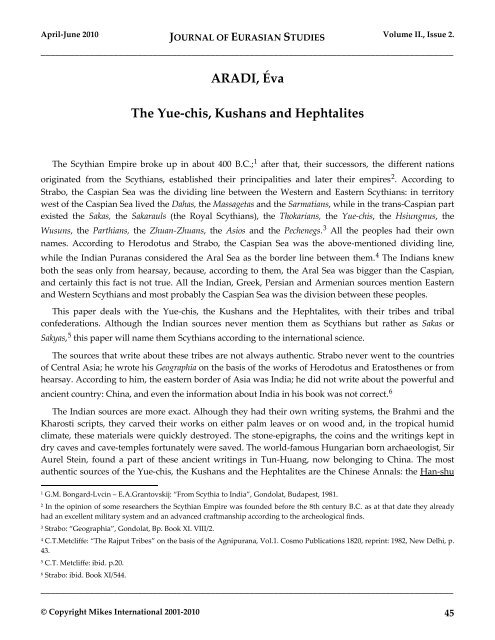
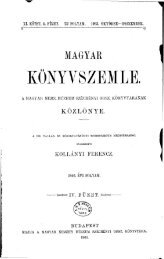
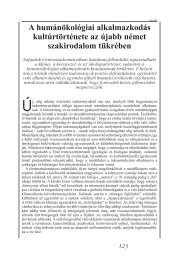
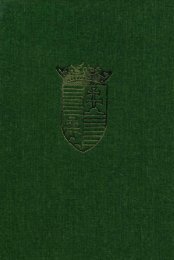
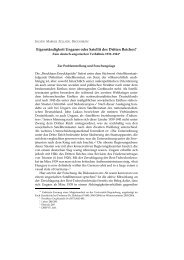
![Letöltés egy fájlban [36.8 MB - PDF] - EPA](https://img.yumpu.com/23369116/1/172x260/letoltes-egy-fajlban-368-mb-pdf-epa.jpg?quality=85)
